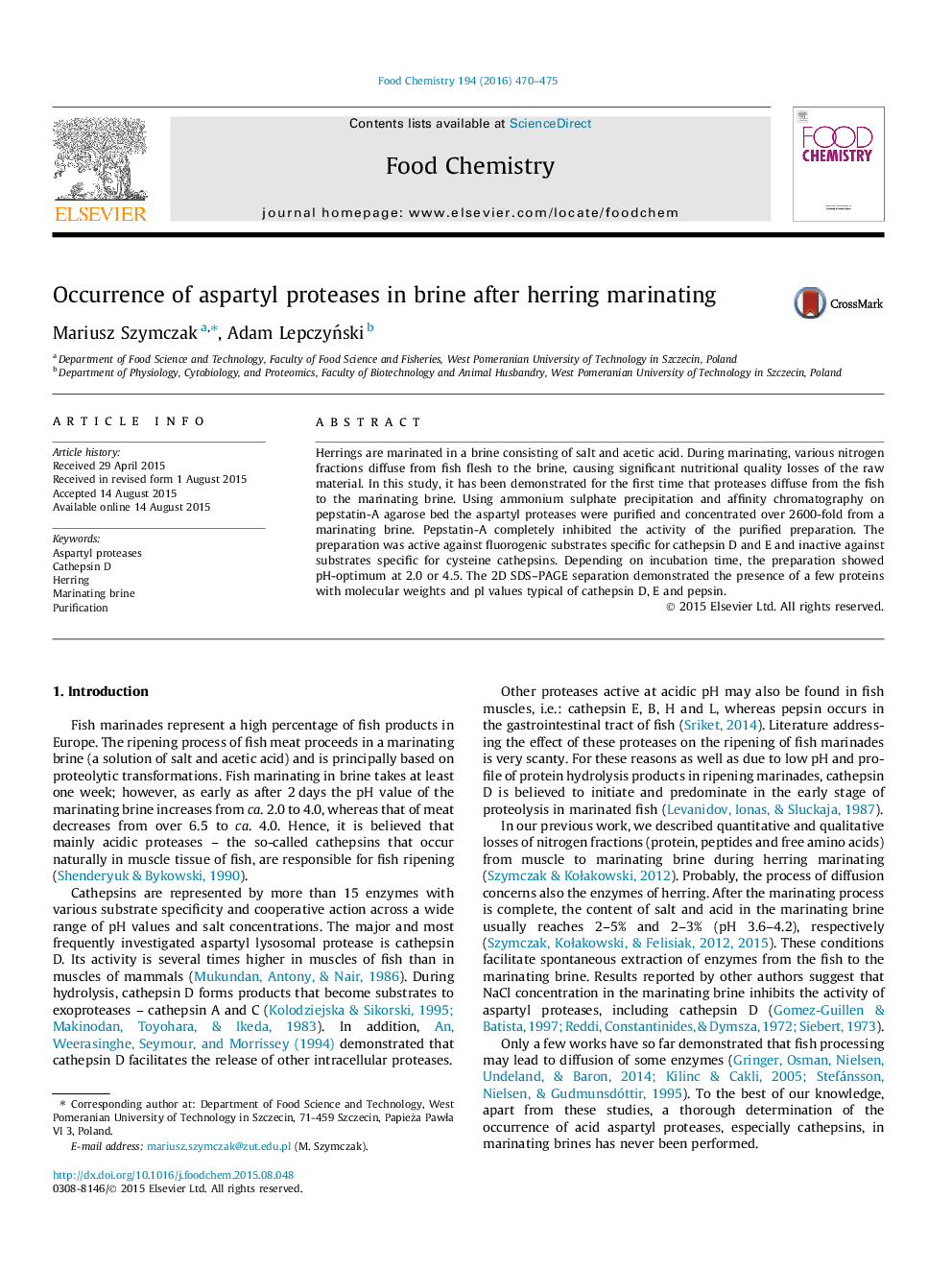| Article ID | Journal | Published Year | Pages | File Type |
|---|---|---|---|---|
| 7590062 | Food Chemistry | 2016 | 6 Pages |
Abstract
Herrings are marinated in a brine consisting of salt and acetic acid. During marinating, various nitrogen fractions diffuse from fish flesh to the brine, causing significant nutritional quality losses of the raw material. In this study, it has been demonstrated for the first time that proteases diffuse from the fish to the marinating brine. Using ammonium sulphate precipitation and affinity chromatography on pepstatin-A agarose bed the aspartyl proteases were purified and concentrated over 2600-fold from a marinating brine. Pepstatin-A completely inhibited the activity of the purified preparation. The preparation was active against fluorogenic substrates specific for cathepsin D and E and inactive against substrates specific for cysteine cathepsins. Depending on incubation time, the preparation showed pH-optimum at 2.0 or 4.5. The 2D SDS-PAGE separation demonstrated the presence of a few proteins with molecular weights and pI values typical of cathepsin D, E and pepsin.
Related Topics
Physical Sciences and Engineering
Chemistry
Analytical Chemistry
Authors
Mariusz Szymczak, Adam LepczyÅski,
